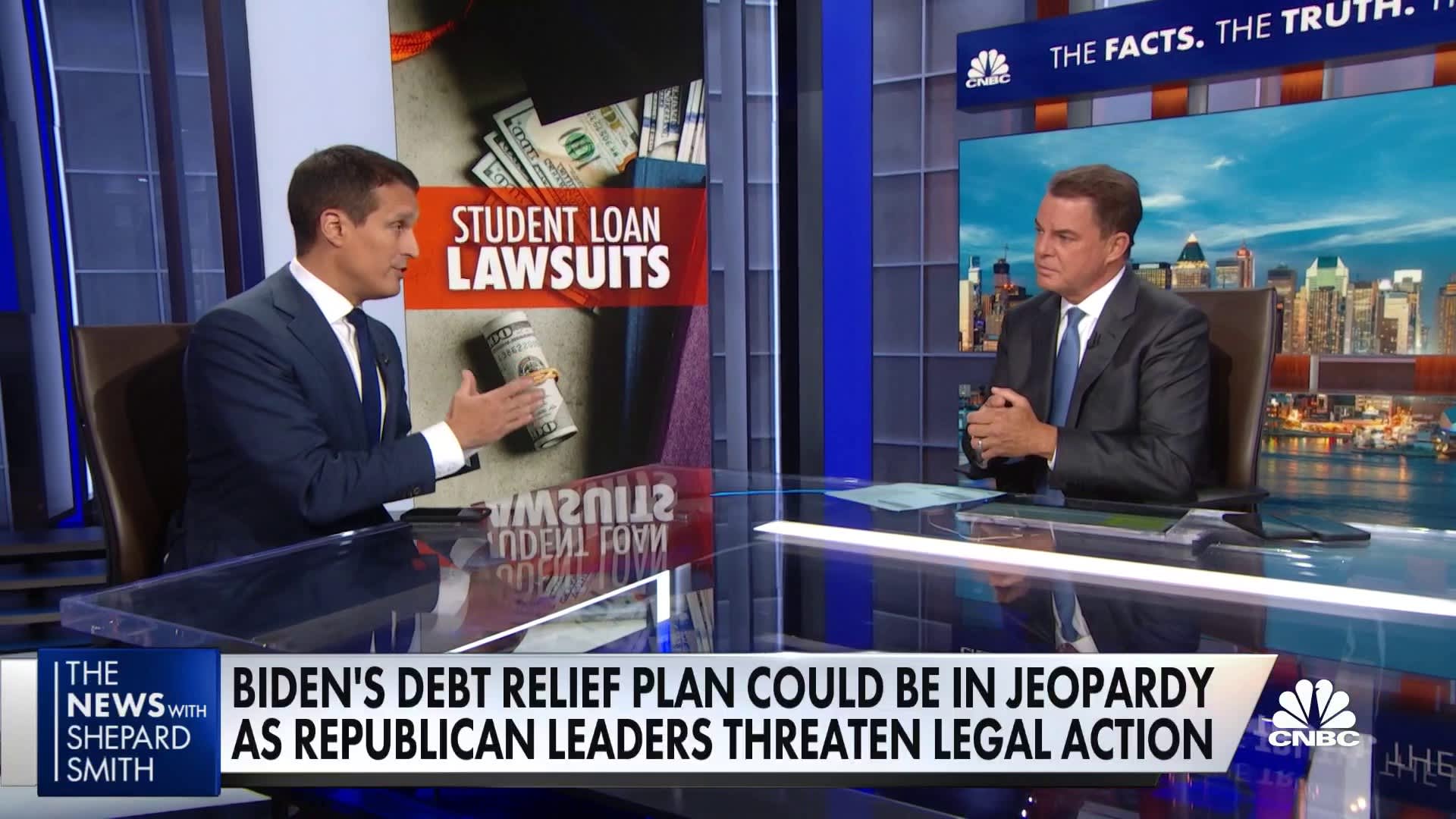Marko Geber | DigitalVision | Getty Images
If you’re one of the millions of Americans expecting student loan forgiveness, you won’t owe federal taxes. But that doesn’t mean you’re off the hook at the state level.
Indiana is the latest to confirm forgiveness will trigger state income taxes, and some borrowers may owe county levies on top of state income tax.
related investing news
“As this law is clearly defined, there is no need for additional administrative rules,” a spokesperson with Indiana’s Department of Revenue said. “Any legislative change must come from the General Assembly.”
More from Personal Finance:
How to save 20% on airfare — if you don’t mind taking some risks
GOP could bring a legal challenge to student loan forgiveness
How marketplace health enrollees can claim a share of $603 million in rebates
A provision from the American Rescue Plan of 2021 makes student loan forgiveness federally tax-free through 2025, and state income taxes depend on whether and when there’s state conformity with federal tax laws.
Last week, Mississippi’s Department of Revenue confirmed with CNBC that student loan forgiveness will be taxable, and the North Carolina Department of Revenue shared the same in a news release.
Of course, with state legislation in flux, it’s still possible these tax policies, among others, may change.
Taxation is possible in other states
In addition to Indiana, Mississippi and North Carolina, state-level taxation also may be possible in Arkansas, California, Minnesota and Wisconsin, according to a preliminary analysis from the Tax Foundation.
The organization initially estimated that 13 states may tax student loan forgiveness and has revised projections with updates.
It now projects seven states — Arkansas, California, Indiana, Minnesota, Mississippi, North Carolina and Wisconsin — may tax student loan forgiveness.

Taxing forgiveness isn’t likely in Massachusetts, but the state hasn’t shared an official determination.
Currently, here’s a breakdown of the status in pending states.
Arkansas: Possibly taxable
The Arkansas Department of Finance and Administration on Friday told CNBC that student loan forgiveness may be taxable. However, it depends on what happens in the state legislature in January, said Scott Hardin, a spokesperson for the Arkansas Department of Finance and Administration.
“It would be inaccurate to report student loan forgiveness will be taxable in Arkansas as we won’t be certain until the legislative session is complete,” he said.
California: Possibly taxable
California may also tax student loan forgiveness, depending on how the Department of Education administers the program, a spokesperson from the state’s Franchise Tax Board told CNBC.
Indiana: Taxable
Indiana’s Department of Revenue has confirmed with CNBC that student loan forgiveness is taxable at the state, and possibly county level.
Massachusetts: Likely not taxable
While the Massachusetts Department of Revenue hasn’t made a final determination, state Rep. Steve Owens, a Democrat, said in a tweet that student loan forgiveness won’t be taxable.
What’s more, the state has already issued guidance on conforming to the American Rescue Plan’s exclusion, Owens said in a separate tweet.
Mississippi: Taxable
The Mississippi Department of Revenue has confirmed with CNBC that student loan forgiveness will be taxable at the state level.
North Carolina: Taxable
Student loan forgiveness is “currently considered taxable income,” according to a news release from the North Carolina Department of Revenue. However, the department is monitoring legislation changes from the state’s General Assembly.
Wisconsin: Possibly taxable
With the state tax law conforming before the American Rescue Plan Act, it’s possible Wisconsin may tax student loan forgiveness, according to the Tax Foundation.
Tax-free forgiveness will require a statutory change and action from the state legislature, a spokesperson the Wisconsin Department of Revenue told CNBC.
“We will certainly address this discrepancy with federal law in our upcoming biennial budget request in an effort to ensure Wisconsin taxpayers don’t face penalties and increased taxes for having their loans forgiven,” they said.


